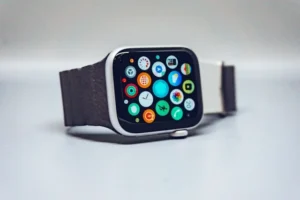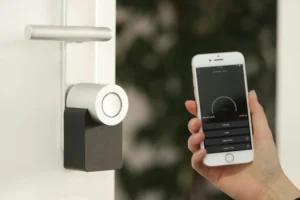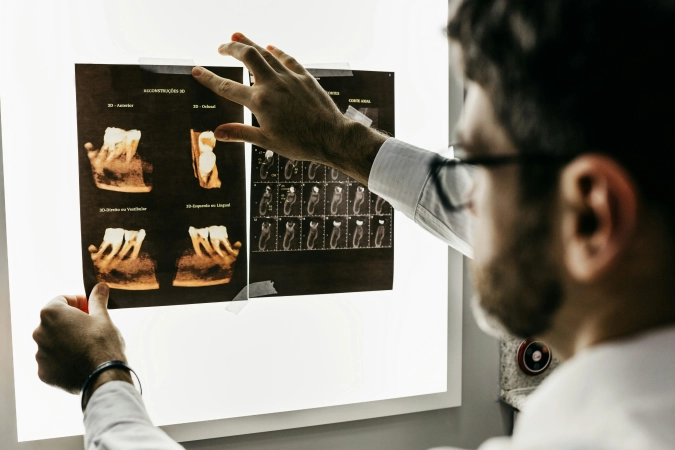15 Powerful Tools for Caregivers: A Comprehensive Guide

Introduction to tools for caregivers
This post may contain affiliate links, meaning I may earn a commission if you make a purchase, at no extra cost to you. I only recommend products I trust. Thank you for your support.
As a caregiver, I understand the challenges and responsibilities that come with caring for a loved one.
Fortunately, advancements in caregiving technology have brought forth a wide range of tools including caregiver apps designed specifically to assist caregivers.
From medication management systems to respite care services, these tools are here to support you in providing the best care possible for your loved one.
In this comprehensive guide, I will introduce you to 15 powerful tools for caregivers, each offering unique benefits and features, so continue reading to the end.
Benefits of using tools for caregiving
Using tools for caregiving can greatly enhance the overall caregiving experience.
Here are some key benefits:
- Efficiency: Tools for caregiving streamline tasks, allowing you to manage your time more efficiently.
- Accuracy: Tools for caregiving such as medication management systems ensure accurate dosages and timely administration.
- Safety: Home safety devices and emergency alert systems provide a secure environment and immediate assistance in case of emergencies.
- Peace of Mind: Caregiving technology like wearable health trackers and remote monitoring devices allow you to keep an eye on your loved one’s health and well-being even when you’re not physically present.
- Convenience: Caregiver apps and Telehealth platforms provide easy access to important information and medical professionals.
- Empowerment: Adaptive furniture and cognitive stimulation apps help individuals maintain independence and cognitive function.
- Self-Care: Respite care services offer temporary relief for caregivers, allowing them to recharge and attend to personal needs.
Now, let’s dive into the top 15 powerful tools for caregivers that can make a significant difference in your caregiving journey.
Top 15 powerful tools for caregivers
These powerful tools for caregivers are designed to empower them in efficiently managing responsibilities and providing compassionate support to their loved ones.

Medication management systems
- Hero: Hero is a smart medication dispenser that organizes and dispenses medications with precision. It also sends reminders to both caregivers and individuals, ensuring timely dosage administration.
- MedMinder: MedMinder is a comprehensive medication management system that offers various reminder options, including visual and auditory prompts. It can also notify caregivers if a dose is missed.
- PillPack: PillPack is a medication management service by Amazon that organizes medications into pre-sorted packets. Each packet contains the necessary pills for a specific time, simplifying the medication administration process for caregivers and individuals.
- TabTime Medelert: TabTime Medelert is a programmable automatic pill dispenser that provides visual and auditory alerts for medication reminders. It helps caregivers and individuals manage complex medication regimens.
These medication management systems and apps offer a range of features to assist caregivers and individuals in maintaining accurate and timely medication administration.
Memory aids
- Reminder Clocks: Reminder clocks display the time, day, and reminders in large, easy-to-read format. They are particularly useful for individuals with cognitive challenges to remember appointments and daily tasks.
- Electronic Memo Boards: Electronic memo boards provide a digital platform for displaying reminders and important messages. Caregivers can update the board remotely, ensuring the individual is always informed.
- Voice-Activated Assistants: Voice-activated assistants like Amazon Echo and Google Home can set reminders, answer questions, and provide entertainment. They are particularly beneficial for individuals with mobility limitations.
Cognitive challenges can make it difficult for individuals to remember important tasks and appointments. Utilizing memory aids make it easier for individuals with cognitive impairments to stay organized.
Caregiver apps
- CareZone: CareZone is an all-in-one app that allows caregivers to manage medications, appointments, and share important information with the care team. It also provides a journal feature for tracking symptoms and progress.
- Lotsa Helping Hands: Lotsa Helping Hands offers a centralized platform for coordinating caregiving tasks and scheduling. It allows caregivers to request assistance from friends and family, ensuring a strong support network.
- CaringBridge: CaringBridge is a platform that allows caregivers to create a personalized journal to update friends and family on a loved one’s health journey. It fosters communication and support during challenging times.
- HomeHero: HomeHero connects caregivers with qualified home care professionals. The app allows caregivers to schedule in-home care services, view caregiver profiles, and receive real-time updates on the care provided.
These caregiver apps expand the toolkit for managing caregiving responsibilities, providing resources for communication, appointments, health tracking, and record keeping, ensuring everyone is up to date.

Wearable health trackers
- Apple watch: The apple watch offers a range of health tracking features, including heart rate monitoring, fall detection, and activity tracking. Caregivers can receive alerts and monitor their loved one’s health metrics remotely.
- Fitbit: Fitbit is a popular wearable device that tracks daily activity, sleep patterns, and heart rate. It provides caregivers with valuable insights into their loved one’s overall health and well-being.
- Oura ring: The Oura ring is a wearable health tracker in the form of a ring, focusing on sleep tracking, activity monitoring, and readiness scores. Caregivers can use the insights to understand their loved one’s sleep patterns and overall well-being.
By keeping track of these metrics, caregivers can identify any potential health issues and take proactive measures to ensure their loved ones’ well-being.
Adaptive furniture
- Adjustable beds: Adjustable beds can be raised or lowered to ensure optimal comfort and accessibility for individuals with mobility issues. They can also alleviate pressure points and improve sleep quality.
- Lift chairs: Lift chairs are designed to assist individuals in standing up or sitting down. They provide added stability and support for those with limited mobility.
- Wheeled walkers with seats: Walkers with built-in seats and wheels offer individuals a convenient way to move around while providing a resting option when needed. This adaptive furniture piece combines mobility support with a comfortable seat for added convenience.
- Rolling shower chairs: Rolling shower chairs are designed for individuals with mobility challenges to safely access the shower. With wheels, these chairs provide easy maneuverability and often come with adjustable features for added comfort.
These examples showcase the versatility of adaptive furniture, addressing the specific needs of individuals with mobility issues and contributing to their comfort, independence, and overall quality of life.
Emergency alert systems
- Life Alert: Life Alert is a well-known emergency alert system that offers 24/7 assistance at the touch of a button. It can summon help in case of falls, medical emergencies, or other urgent situations.
- Medical Guardian: Medical Guardian provides a range of emergency alert systems, including wearable devices and home-based units. They offer peace of mind knowing that help is just a button press away.
- Bay Alarm Medical: Bay Alarm Medical offers emergency alert systems with features such as fall detection and GPS tracking. These systems provide an additional layer of security, especially for individuals who may need assistance outside their homes.
Emergency alert systems are essential for immediate assistance in case of falls or emergencies, ensuring help is just a button press away.

Home safety devices
- Fall Detection Systems: Fall detection systems use advanced sensors to detect falls and automatically send alerts to caregivers or emergency services. They can be integrated with existing home security systems.
- Smart Locks: Smart locks allow caregivers to remotely lock and unlock doors, providing secure access to the home. They can also grant temporary access to healthcare professionals or other trusted individuals.
- Security Cameras: Security cameras provide caregivers with real-time video monitoring of their loved one’s home. They offer an extra layer of security and peace of mind.
Creating a secure environment is crucial for the safety of your loved one, so Implement smart home safety devices.
Telehealth platforms
- Teladoc: Teladoc is a Telehealth platform that connects individuals with board-certified doctors via phone or video consultations. It provides convenient access to medical professionals without leaving the comfort of home.
- Amwell: Amwell offers virtual doctor visits and 24/7 urgent care services. It allows caregivers to schedule appointments, receive medical advice, and get prescriptions delivered to their loved one’s doorstep.
- MDLive: This platform connects caregivers with healthcare providers for virtual consultations. It offers a range of services, including general medical advice, mental health support, and dermatology consultations, enhancing the accessibility of healthcare for caregivers and their loved ones.
- HealthTap: HealthTap provides access to a network of doctors for virtual consultations, allowing caregivers to ask medical questions, discuss symptoms, and receive personalized advice.
These powerful tools for caregivers provide convenient access to medical professionals through video consultations, enabling caregivers to receive medical advice, prescriptions, and even monitoring services from the comfort of their own homes.
Transportation services
- Uber health: Uber health is a service that provides reliable transportation for medical appointments. Caregivers can easily schedule rides and ensure their loved ones arrive safely and on time.
- Lyft concierge: Lyft Concierge is another transportation service that offers non-emergency medical transportation. Caregivers can manage rides and track their loved one’s journey.
- MedBridge transport: MedBridge transport specializes in medical transportation, offering services for individuals with varying mobility needs. They provide a range of vehicles equipped to accommodate wheelchair users and those with specific medical requirements.
- GoGoGrandparent: GoGoGrandparent is a service that helps seniors and individuals with mobility challenges. Caregivers can schedule rides on behalf of their loved ones through a simple phone call.
- Ride health: Ride health is a platform that coordinates transportation for patients, ensuring they get to and from medical appointments seamlessly. It integrates with healthcare systems to streamline the transportation process.
These tools for caregiving provide efficient and convenient services to transport your loved ones to and from medical appointments, ensuring they receive the care they need without any transportation barriers.
Cognitive stimulation apps
- Lumosity: Lumosity is a popular cognitive training app that offers brain games and exercises to improve memory, attention, and problem-solving skills. It can be beneficial for individuals with dementia.
- CogniFit: CogniFit provides personalized cognitive training programs that target specific cognitive skills. It adapts to the individual’s progress and offers a comprehensive assessment of cognitive abilities.
- Elevate: Elevate is a cognitive training app that focuses on enhancing reading, writing, math, and analytical skills. It tailors exercises to individual strengths and weaknesses, providing a personalized learning experience.
- BrainHQ: Developed by posit science, BrainHQ provides a range of exercises targeting memory, attention, and brain speed. It is designed to be adaptive, ensuring that the difficulty level adjusts to the user’s performance.
- Clock yourself: Clock yourself is a unique cognitive training app that combines physical movement with cognitive challenges. Users perform specific exercises while engaging in cognitive tasks, promoting both mental and physical well-being.
These caregiver apps provide diverse options for individuals looking to enhance their cognitive abilities or support those with specific cognitive challenges.
Personal Emergency Response Systems (PERS)
- Philips Lifeline: Philips Lifeline is a PERS device that connects individuals to emergency services with a push of a button. It can be worn as a pendant or wristband, providing peace of mind for both caregivers and individuals living independently.
- Bay alarm medical: Bay alarm medical provides PERS with options for both in-home and on-the-go use. Their systems typically include a wearable button and a base station connected to a monitoring center.
- MobileHelp: MobileHelp provides PERS that include both in-home and mobile solutions. Users can wear a portable help button, and the system can include GPS tracking to locate individuals who may need assistance outside their homes.
- RescueTouch: RescueTouch provides a wearable PERS device that combines GPS tracking and two-way communication. Users can press a button in case of an emergency, and the device can transmit their location to a designated contact.
These powerful tools for caregivers showcase the variety of Personal Emergency Response Systems available, each with its own features and capabilities providing peace of mind for caregivers, knowing that help is just a button press away.
Remote monitoring devices
- Sensor mats: Sensor mats detect movement and can be placed under a mattress to monitor an individual’s sleep patterns and detect potential falls.
- Bed alarms: Bed alarms alert caregivers when an individual gets out of bed, ensuring their safety and allowing for timely assistance.
- Door/Window alarms: These alarms notify caregivers when doors or windows are opened, providing an additional layer of security and helping prevent wandering for individuals who may be prone to it.
These devices are particularly helpful for caregivers who cannot be physically present at all times but still want to ensure the safety and well-being of their loved ones.
Legal document services
- LegalZoom: LegalZoom offers online legal document services, including assistance with wills, healthcare directives, and power of attorney. It provides a convenient and affordable way to ensure important documents are in order.
- Rocket lawyer: Caregivers can use this platform to create customized documents that outline their responsibilities and authority when making medical or legal decisions like power of attorney on behalf of the individual in their care.
- LegalSifter: LegalSifter, with its AI-powered document review, can assist caregivers in quickly identifying and understanding key terms and potential issues in legal documents related to caregiving responsibilities.
Accessing legal document services is crucial for ensuring important documents, such as wills and healthcare directives are in order.
Respite care services
- Residential respite programs: Some facilities specialize in short-term residential respite programs, providing a supportive environment for individuals with varying care needs. Caregivers can opt for these programs to ensure their loved ones are well-cared for during their break.
- Home health care agencies: These agencies provide trained professionals who can come to the caregiver’s home to offer assistance with daily tasks, medical care, and companionship. This allows caregivers to take a break while ensuring their loved ones receive necessary care.
- Hospice respite care: Hospice services may offer respite care options, particularly for caregivers supporting individuals with serious illnesses. This can provide relief while ensuring that the patient’s specific medical needs are addressed by trained professionals.
- Technology based respite solutions: Virtual platforms and Telehealth services can be utilized to offer respite care. Caregivers can connect their loved ones with professionals or engage in virtual support groups, providing a break while still ensuring that their loved ones are socially engaged.
Exploring respite care services provides temporary relief, allowing you to recharge and attend to your personal needs. Respite care services are powerful tools for caregivers, offering professional caregivers who can step in and provide care while you take a break.
Meal delivery services
- HelloFresh: HelloFresh is a meal kit delivery service that provides pre-portioned ingredients and recipes, allowing caregivers and their loved ones to cook nutritious meals at home without the need for extensive meal planning.
- SeniorMealFavourites: SeniorMealFavourites is a meal delivery service specifically catering to seniors. It offers a variety of nutritious and ready-to-eat meals, accommodating dietary preferences and restrictions.
- Munchery: Munchery is a meal delivery service that provides ready-to-eat meals prepared by local chefs. Caregivers can choose from a rotating menu, ensuring variety and freshness in their loved ones’ meals.
- Blue apron: Blue apron is a meal kit service that delivers fresh ingredients and chef-designed recipes, offering a convenient way for caregivers to prepare wholesome meals for their loved ones.
These meal delivery services offer caregivers a range of options to ensure their loved ones receive nutritious and convenient meals, alleviating the challenges of meal preparation and ensuring a well-balanced diet.
How to choose the right tools for caregiving
Choosing the right tools for caregiving can be overwhelming.
Here are some factors to consider:
- Needs and Preferences: Assess the specific needs of your loved one and your caregiving situation. Consider their medical conditions, mobility, and cognitive abilities.
- Ease of Use: Look for tools that are user-friendly and intuitive, ensuring both you and your loved one can easily navigate and utilize them.
- Compatibility: Check if the tools can integrate with existing systems or devices you already have.
- Cost: Determine your budget and compare the costs of different tools. Consider the long-term value and potential savings they can provide.
Resources for finding and purchasing caregiving tools
Finding the right caregiving tools can be challenging, but there are resources available to help you.
Here are some websites that offer a wide range of caregiving tools:
- AgingCare: AgingCare is an online community and resource center for caregivers. They have a dedicated section for caregiving tools and equipment.
- The Caregiver’s Voice: The Caregiver’s Voice provides articles, reviews, and recommendations for caregiving tools and resources.
- Family Caregiver Alliance: The Family Caregiver Alliance offers a range of resources for caregivers, including a directory of caregiving tools and services.
Recap of the 15 powerful tools for caregivers
- Medication management systems
- Memory aids
- Caregiver apps
- Wearable health trackers
- Adaptive furniture
- Emergency alert systems
- Home safety devices
- Telehealth platforms
- Transportation services
- Cognitive stimulation apps
- Personal Emergency Response Systems (PERS)
- Remote monitoring devices
- Legal document services
- Respite care services
- Meal delivery services
Conclusion
In conclusion, these 15 powerful tools for caregivers can significantly enhance the caregiving journey and improve the well-being of both the caregiver and the loved one.
From medication management systems to respite care services, these tools offer convenience, reassurance, and peace of mind. By utilizing these tools, caregivers can provide better care, reduce stress, and ensure the safety and well-being of their loved ones.
Remember to assess the specific needs of your loved one, consult with healthcare professionals, and consider your budget when choosing the right tools for caregiving.
With the right tools and resources, you can navigate the caregiving journey with confidence and ease.
Additionally, I suggest you check out these articles on Top 10 Assistive Devices for Elderly, hip fracture recovery tips for caregivers, and the power of empathy and compassion in caregiving.
Frequently Asked Questions (FAQs)
How can adaptive furniture improve the caregiving environment?
Adaptive furniture enhances comfort and accessibility, promoting a safe and supportive environment for individuals with mobility challenges.
What are the dementia tools for caregivers?
Lumosity, a popular choice, features brain games to enhance memory, attention, and problem-solving. CogniFit stands out for its personalized programs targeting specific cognitive skills. Elevate focuses on refining reading, writing, math, and analytical abilities. BrainHQ adapts its difficulty levels based on user performance. Clock Yourself, a unique app, integrates cognitive exercises with tasks, promoting holistic mental and physical well-being.
How can cognitive stimulation apps benefit individuals with dementia?
Cognitive stimulation apps provide engaging activities to individuals with dementia, helping maintain cognitive function and mental stimulation.
How do caregiver apps assist in daily tasks?
Caregiver apps streamline daily tasks, offering features like medication management, appointment scheduling, and communication with the care team.




